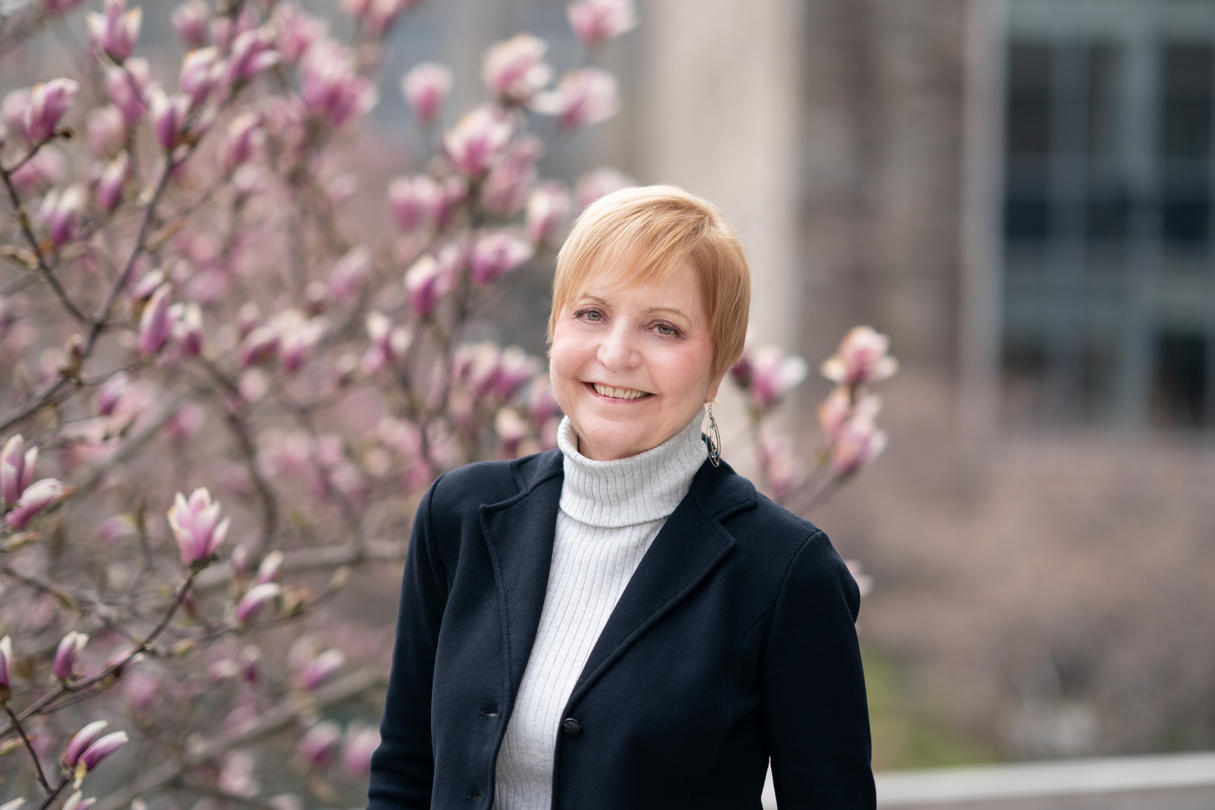Susan Bindig will retire as executive director of Princeton Institute for International and Regional Studies

Susan Bindig, executive director of Princeton Institute for International and Regional Studies (PIIRS), will step down from her position on April 30, 2024, after nearly three decades at Princeton. During her tenure, PIIRS has grown into the University’s primary center for international and regional studies, a home for cutting-edge research, innovative teaching, collaborative learning, visiting fellows, international networks and dynamic programming.
Bindig began her Princeton career as assistant editor at World Politics, an internationally renowned quarterly journal of political science at the Center of International Studies (CIS), and as communications associate at the Princeton School of Public and International Affairs (SPIA). When the position of assistant director of the CIS became available, Bindig eagerly stepped into leadership. In 2003, CIS merged with Council on Regional Studies to form PIIRS, and Bindig was named associate director. “Her career was swift; her talent was evident; and commitment and dedication were unparalleled,” said Deborah J. Yashar the Donald E. Stokes Professor of Public and International Affairs and director of PIIRS.
In 2007, Bindig helped launch the PIIRS Global Seminars. “At the start, there was no template," she said. “We had to create it from scratch." With Desaix Anderson ’58, a distinguished Princeton alum and Foreign Service officer with deep connections to Vietnam, Bindig oversaw a program that took 14 undergraduates to Vietnam, and made it into into something new and pathbreaking at Princeton: a scholarly and experiential program that allowed students to make concrete connections between pedagogy and place. The Princeton Alumni Weekly described the students as “pioneers of a sort, taking part in the first global seminar… part of the University’s recent push to give more students an international experience… Their majors range from anthropology to chemical engineering to the Woodrow Wilson School [now SPIA]. They have come to study a war that divided America, recast U.S. foreign policy, and left an indelible mark on the generation that came of age in the 1960s and 1970s.”
Bindig has nurtured the program, whose footprint is now big and wide: since 2007, PIIRS has hosted 65 distinct seminars in more than 25 countries with 50 international partners, enriching the academic and personal lives of over 1,000 students. “We created something that didn’t exist before, and we expanded PIIRS's reach,” Bindig said. “We partnered with international institutions of higher education, but also with museums, specialty institutes, even an entire town in Italy. It has been an honor and pleasure to create this educational venture from the ground up.”
Bindig also has a deep faith and respect for her staff, she said. In recruiting, “I’ve learned to put people at ease and see their personality,” she said. She praised the collegiality of PIIRS staff — “Everybody pitches in; no one leaves anyone hanging,” she said — which Yashar and PIIRS’ advisory board attributed to Bindig’s thoughtful management style. “I’ve learned to step back and let people take the ball and run with it,” Bindig said.
“I’m eternally in awe of all that Susan has done and grateful and honored to have worked with her,” Yashar added. “She has achieved the ultimate goal, which is to leave behind an infrastructure and staff who not only adore and admire her, but who have also been taught and encouraged to fly.”
Before Princeton, Bindig worked as an editor for a capella books, an arts imprint of Chicago Review Press, while completing her Ph.D. in performance studies at New York University. She also had an earlier career in dance, having taught at Mount Holyoke College (and the Five Colleges) and at the University of California in Irvine and Riverside. In her next chapter, she hopes to return to that first love: “I want to return to the arts in some capacity,” she said. “I’m in the exploratory stage and trusting that it’s all going to work out.”
